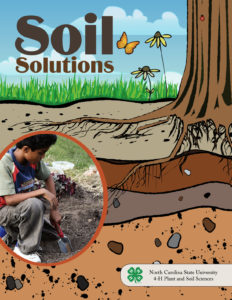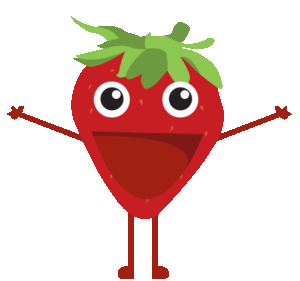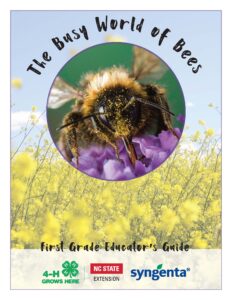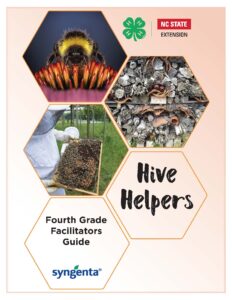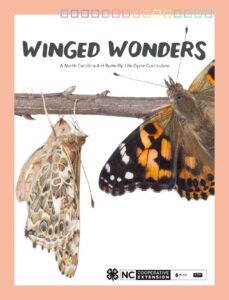Adventures in Agroecology
go.ncsu.edu/readext?915977
en Español / em Português
El inglés es el idioma de control de esta página. En la medida en que haya algún conflicto entre la traducción al inglés y la traducción, el inglés prevalece.
Al hacer clic en el enlace de traducción se activa un servicio de traducción gratuito para convertir la página al español. Al igual que con cualquier traducción por Internet, la conversión no es sensible al contexto y puede que no traduzca el texto en su significado original. NC State Extension no garantiza la exactitud del texto traducido. Por favor, tenga en cuenta que algunas aplicaciones y/o servicios pueden no funcionar como se espera cuando se traducen.
Português
Inglês é o idioma de controle desta página. Na medida que haja algum conflito entre o texto original em Inglês e a tradução, o Inglês prevalece.
Ao clicar no link de tradução, um serviço gratuito de tradução será ativado para converter a página para o Português. Como em qualquer tradução pela internet, a conversão não é sensivel ao contexto e pode não ocorrer a tradução para o significado orginal. O serviço de Extensão da Carolina do Norte (NC State Extension) não garante a exatidão do texto traduzido. Por favor, observe que algumas funções ou serviços podem não funcionar como esperado após a tradução.
English
English is the controlling language of this page. To the extent there is any conflict between the English text and the translation, English controls.
Clicking on the translation link activates a free translation service to convert the page to Spanish. As with any Internet translation, the conversion is not context-sensitive and may not translate the text to its original meaning. NC State Extension does not guarantee the accuracy of the translated text. Please note that some applications and/or services may not function as expected when translated.
Collapse ▲This collection of lesson plans come from undergraduate student interns that participated in NCSU’s APSIRE program and focus on different topics in Agroecology and the Food System.
Dairy Heifers and Disease
Third Grade 4-H School Enrichment Curriculum Correlated to the third grade science objectives with the Common Core and NC Essential Standards. Eight engaging lessons can be utilized by teachers or volunteers working in schools to enrich student’s conceptual understanding in the area of plant and soils.
Conserve with Cover Cropping
Growing a strawberry garden at your school provides students with a hands-on space to explore the life cycle of a plant and an understanding of cultivating food. Explore ideas on how to grow strawberries in an annual production system and browse a few lessons by expert teachers for possibilities of what to learn from the garden.
Do you know where your lunch came from?
This curriculum is crafted to engage youth in celebrating bees and their pollinator allies and build an understanding of the benefits that bees and other pollinators provide to humans, as well as the fact that all bees need our help to do their work. Youth will also explore the diversity and differences within habitats and garner further understanding of what honey bees, native bees and other pollinators need to grow and thrive.
Weed Bingo
Every spring and summer, youth and adults alike enjoy sweet-smelling flowers and listening to the buzzing sound that comes from the rapidly beating wings of busy bees. Through a series of seven lessons and multiple experiential activities, youth will learn how critical bees are to our agricultural industry and native ecosystems.
Growing in different conditions
Follow the wondrous transformation of the caterpillar of a painted lady butterfly into a chrysalis to the emergence of a fancy, flighted adult butterfly! Winged Wonders is a hands-on exploration of animal life cycles through the lens of raising live butterflies. Youth explore the parts of an insect, habitat, life cycle and grow an appreciation and understanding of the role of insects as part of our ecosystems.
Soil versus Dirt
Third Grade 4-H School Enrichment Curriculum Correlated to the third grade science objectives with the Common Core and NC Essential Standards. Eight engaging lessons can be utilized by teachers or volunteers working in schools to enrich student’s conceptual understanding in the area of plant and soils.
Strength in the Substrate
Growing a strawberry garden at your school provides students with a hands-on space to explore the life cycle of a plant and an understanding of cultivating food. Explore ideas on how to grow strawberries in an annual production system and browse a few lessons by expert teachers for possibilities of what to learn from the garden.
Economics
This curriculum is crafted to engage youth in celebrating bees and their pollinator allies and build an understanding of the benefits that bees and other pollinators provide to humans, as well as the fact that all bees need our help to do their work. Youth will also explore the diversity and differences within habitats and garner further understanding of what honey bees, native bees and other pollinators need to grow and thrive.
Beautiful Biodiversity
Every spring and summer, youth and adults alike enjoy sweet-smelling flowers and listening to the buzzing sound that comes from the rapidly beating wings of busy bees. Through a series of seven lessons and multiple experiential activities, youth will learn how critical bees are to our agricultural industry and native ecosystems.
To be named
Follow the wondrous transformation of the caterpillar of a painted lady butterfly into a chrysalis to the emergence of a fancy, flighted adult butterfly! Winged Wonders is a hands-on exploration of animal life cycles through the lens of raising live butterflies. Youth explore the parts of an insect, habitat, life cycle and grow an appreciation and understanding of the role of insects as part of our ecosystems.



